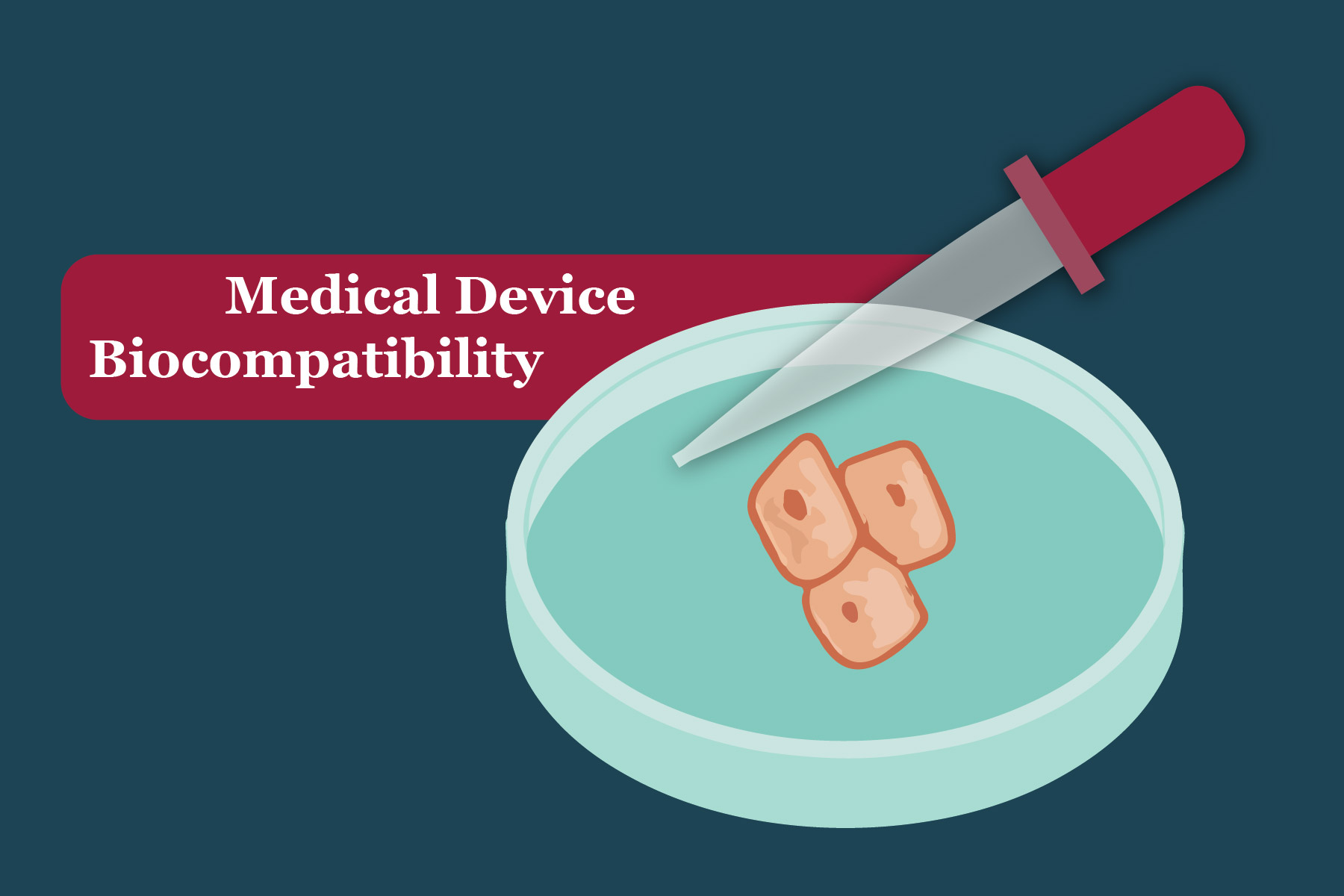If your medical device has contact with human tissue, it is a safe bet that you will be required to conduct biocompatibility testing. Biocompatibility testing is used to determine the “potential for an unacceptable adverse biological response resulting from contact of the component materials of the device with the body”.1 The FDA relies heavily on ISO 10993 as the guiding force for biocompatibility testing in medical devices. This ISO standard is rooted in a risk-based approach to testing that the FDA views as the gold standard to ensure that medical devices do not cause adverse local or systemic effects due to contact with human tissue.
Biocompatibility testing is required for almost all medical devices that have contact with human tissue. However, in alignment with ISO 10993-1:2018, you can reduce the number of tests you have to conduct if you can provide sufficient justification, including the following data:
- Data that shows materials you are using are substantially the same as previously tested materials. If there are changes in sterilization methods, manufacturing processes, chemical composition, or patient contact, then additional testing may be required.
- Data from suppliers of the material that have conducted their own testing
- Clinical data from predicative devices
Before you dive into biocompatibility testing you will want to first thoroughly understand how your device interacts with the body and identify risk factors. There are several different types of biocompatibility testing, including cytotoxicity, sensitization, genotoxicity, hemocompatibility, carcinogenicity, and reproductive/developmental toxicity, just to name a few.2 Which of these tests you will have to conduct depends on the specifications and risks identified for your device.
An often-confusing nuance for biocompatibility testing is that the FDA does not have a list of approved biocompatible materials because they do not approve materials, they only approve medical devices. This is primarily because the use of a certain material in one device might not mean it will act the same in another device. Since the intended use, design, and specifications for devices can all vary, it means that it is nearly impossible for there to be a concise list of “safe” materials. The best thing for manufacturers to do is to leverage data for predicate devices that utilize the same materials in a similar way. If you have a medical device that needs biocompatibility testing, EMMA International can help! Call us at 248-987-4497 or email info@emmainternational.com to get connected with our team of experts today.
1ISO (2018) ISO 10993-1:2018 Biological Evaluation of medical devices – Part 1: Evaluation and testing within a risk management process retrieved on 12/6/2020 from: https://www.iso.org/standard/68936.html
2FDA (2020) Use of ISO 10993-1 retrieved on 12/6/2020 from: https://www.fda.gov/media/85865/download






